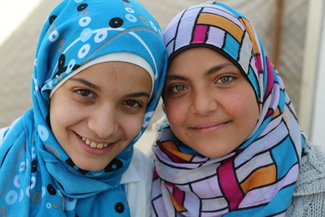

Displaying 21 - 30 of 244
This Human Rights Watch report documents how children with disabilities in Gaza face dangerous situations and additional difficulties as they struggle to comply with frequent evacuation orders and a lack of effective advance warning of attacks.
About 60,000 children have fled into Syria from Lebanon in the past week, with many suffering from dehydration and exhaustion, said Save the Children calling for an immediate de-escalation of violence in the region.
Israel has allowed severely wounded and seriously ill children to leave Gaza. They will get medical treatment outside that territory. This evacuation was planned for Sunday but was delayed. Israel blocked it after an unrelated attack far to the north over the weekend. NPR's Jane Arraf reports from Beirut.
This webinar was a panel conversation hosted by the CPC Learning Network, ChildFund Alliance, the Program on Forced Migration and Health at Columbia University, and the Watchlist on Children and Armed Conflict that brought together a panel of experts to discuss the root causes leading to recruitment and involvement in activities of armed groups as well as the current context in countries such as Sudan, Colombia, Syria, Iraq, Yemen, and more.
Israel and Egypt agreed to allow at least 19 sick children, most of them cancer patients, to leave Gaza for medical treatment on Thursday, Israeli and Palestinian officials said, in the first major evacuation of critically ill Gazans since the Rafah border crossing shut down in early May.
As the death toll in Gaza continues to grow amid Israel’s punishing bombardment of the Strip, so too does another statistic: the missing children. To date, at least 21,000 children are missing amid the chaos of the war, according to a new report by Save the Children.
The UN children's agency Unicef has told the BBC a convoy carrying aid was denied entry to northern Gaza, despite having all the necessary documents, adding that this is a common occurrence.
In this study the authors explored the coping resources and assets of care leavers during and following the pandemic from the perspective of 44 care leavers in Israel aged 18–29.
More ‘grave violations’ committed in occupied territories and Israel than anywhere else in world, report says.



